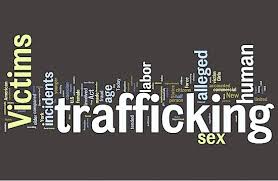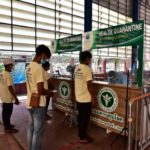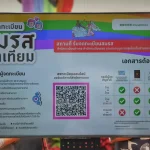
Anti-trafficking police in the northern city of Chiang Mai rescued three underage girls last week who had been trafficked into a brothel, and issued arrest warrants for 25 people including local politicians, bureaucrats, army officers, a former Buddhist abbot and successful businessmen, as the government spares no one in its campaign against modern-day slavery.
The surveillance and rescue operation was carried out with the help of the Children and Women’s Protection Center, a nongovernmental organization, in a clear demonstration of improving collaboration between government, law enforcement and civil society in the fight against trafficking. It also illustrates that government efforts against trafficking are all-encompassing and nationwide, and have not been focused solely on higher profile cases that have gained international attention.
Nonetheless, the pursuit of those involved in trafficking in the fishing industry also continued last week with the arrest of the head of the Fishing Association of southern Trang province and three fishing boat captains on charges of trafficking in persons. The arrests came after rescued migrants from Myanmar sought help from a civil society group and the Ministry of Labor who in turn reported they had been trafficked to police. Police investigated and found enough evidence to see and receive arrest warrants.
Meanwhile in Chiang Mai, the arrests were also the result of police investigations. The rescued girls, aged between 13 and 15 years old, told police the brothel manager contacted customers through mobile social media applications. A dozen of the suspects have already been arrested and police are searching for the rest. The Bangkok Post described many of the suspects as being prominent figures on the Chiang Mai social scene.
Among those already in custody for abusing the young women are Major Kriengsak Maiwong, 60, a former army officer attached to a camp in Chiang Mai, and Pone Sungsiri, 47, a former abbot of a well-known temple in the province. They have denied the charges.
Since the mid-1990s, successive Thai governments have enacted strong laws, measures and punishment to deter pedophiles, both foreign and domestic. High profile arrests and prosecution of pedophiles have served to reduce the problem by a great degree. Child protection laws and programs have been continually strengthened.
Northern Thailand in particular is regarded as a “catchment zone” for trafficking of persons and trafficking of young women into the commercial sex industry. The region is among the poorer areas of the country, but is also nearby neighboring Myanmar, Laos and not far from southern China. Thailand’s advantage in comparative wealth and opportunities attracts people from neighboring countries to migrate to Thailand, often by risky and dangerous means.
The region’s porous borders have long been fertile ground for smuggling of all types of contraband from drugs to weapons to people. The thick forested and mountainous terrain, along with weak control of border areas by neighboring governments, has made patrolling and securing northern borders difficult.
For more information and updates about Thailand’s policies and actions against trafficking in persons and related issues, visit www.thaianti-humantraffickingaction.org
*****************
Thailand Focus week of November 9, 2015




